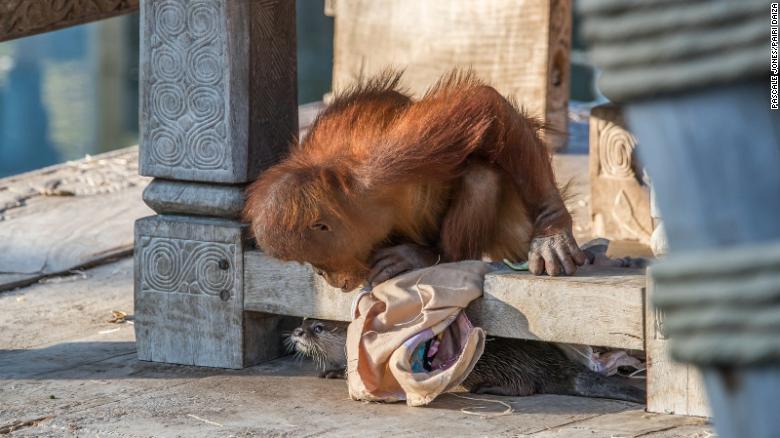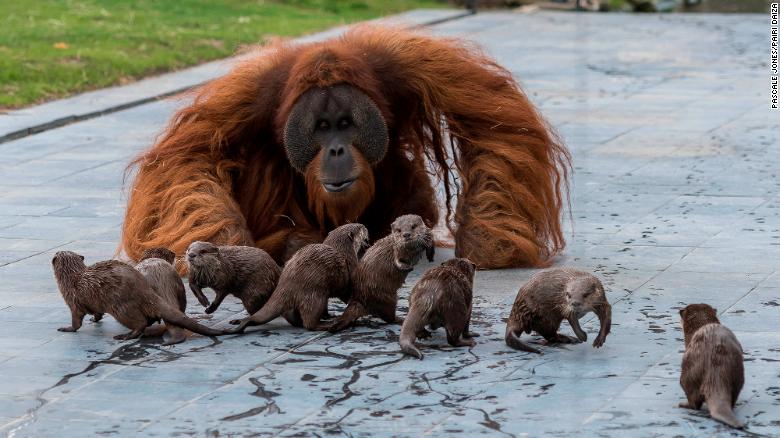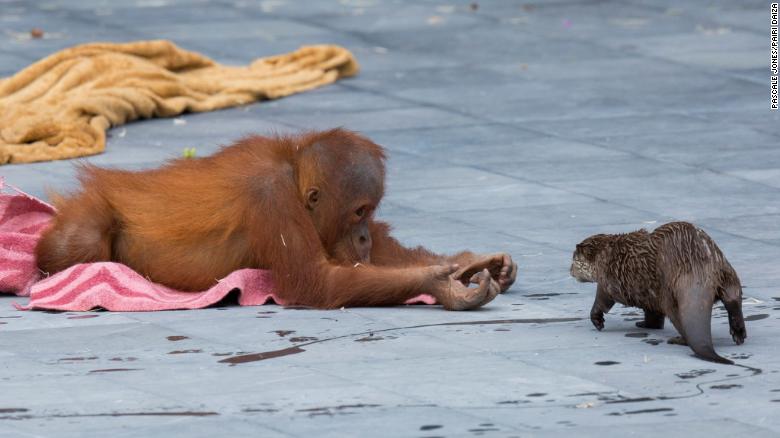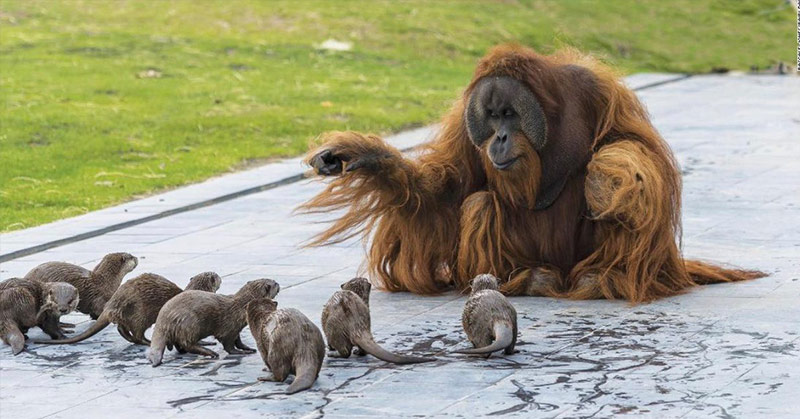We tend to view the animal world as one where each species operates alone, avoiding contact with other animals and only forming bonds with those of their own species. This, however, is not always the case and occasionally unlikely friendships can form. This is what happened at a zoo in Belgium, where a family or Orangutans have formed a beautiful bond with a family of otters.

A Blossoming Friendship
The otters and orangutans live at the Pairi Daiza zoo in Domaine du Cambron, Belgium. They are a part of a program that is designed to maintain the orangutans’ wellbeing while living in captivity. The family of orangutans includes 24-year-old Ujian, 15-year-old Sari, and their three-year-old son, Berani.
Zoo spokesperson Mathieu Goedefroy explained that because orangutans share 97% of their DNA with humans, they need to be constantly entertained, occupied, challenged, and kept busy mentally, emotionally, and physically.

“Our keepers entertain them all day long with mind games, riddles, puzzles, and other stuff to train their intelligence,” he said [1].
The family of Asian small-clawed otters have been allowed to live in the river that runs through the orangutan family’s enclosure as part of the program to keep the orangutans stimulated. Goedefroy says that the experiment is working very well, and that Berani and Ujian have become particularly close with their little neighbours.
“The otters really enjoy getting out of the water on the orangutan island to go and play with their big, furry friends,” said Goedefroy. “It makes life more fun and interesting for both animal species, which makes it a very successful experiment,” [1].
Read: Scientists Alarmed By Experiment Placing Human Intelligence Gene Into A Monkey
Orangutan Populations Under Threat
Programs such as these are highly necessary because Orangutan populations living in the wild are under significant threat. These large creatures live in the lowland forests of Borneo and Sumatra and spend most of their time in the trees [2].
These forests are being destroyed for the benefit of oil palm plantations, mining, and infrastructure, and as such the orangutan’s home is being lost. Over the past forty years, sixty percent of orangutan habitats in Indonesia and Malaysia have been lost due to deforestation, and recent estimates suggest that every year, we are losing three to five thousand orangutans [3].

Other threats to the orangutan population include the illegal wildlife trade, hunting and poaching, and falling victim to human-animal conflict that results from human development and activity.
Because female orangutans take fourteen to sixteen years to reach sexual maturity and only give birth once every seven to nine years, the primate is particularly vulnerable to population decline. Because of this, some experts have predicted that the orangutan will be extinct in twenty years unless habitats are protected and illegal hunting and trade is stopped [3].
To learn more about the orangutan measures that are being taken to protect this incredible species, check out the Pairi Daiza zoo’s website.

